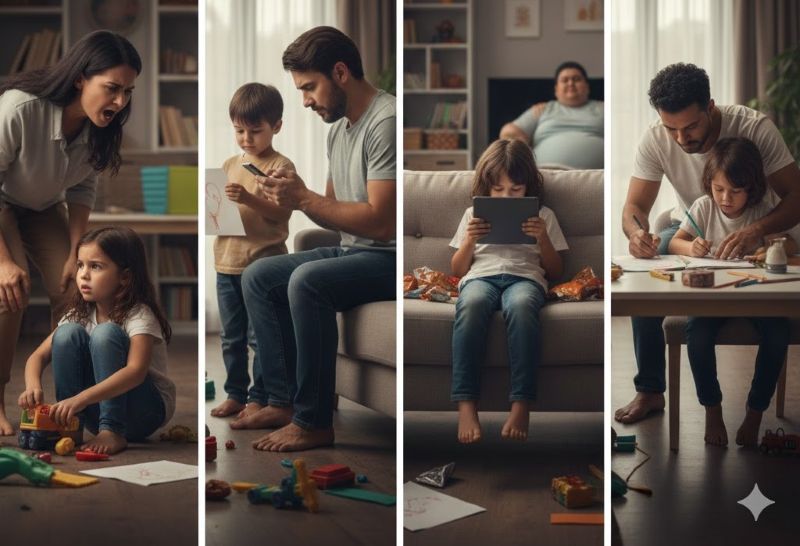
Parenting on a Budget: Saving Money Without Sacrificing Quality
June 2, 2025
Talking to Your Kids About Tough Topics Like a Pro
June 3, 2025Every child deserves to feel confident, capable, and loved. But confidence doesn’t just happen—it’s something we help them grow into, step by step.
As parents, we play a powerful role in shaping how our children see themselves. The way we speak, support, and guide them can either build them up—or slowly chip away at their belief in their own abilities.
If you’ve ever wondered “How can I help my child believe in themselves?”—you’re not alone. And the good news? It doesn’t take perfection. Just presence, encouragement, and a few mindful shifts.
Here’s how to build real, lasting confidence in your child—no pressure, just love.
1. Praise Effort, Not Just Results
It’s tempting to celebrate the “win”—the A+ on the test, the goal on the soccer field. But confidence grows deeper when we praise the process.
Try this:
-
“You worked so hard on that project—I saw your focus.”
-
“I’m proud of how you kept trying, even when it was tough.”
-
“You didn’t give up. That shows real strength.”
Focusing on effort teaches kids that they are capable—no matter the outcome.
2. Let Them Fail (And Learn From It)
Yes, it’s hard to watch our kids struggle. But confidence isn’t about always succeeding—it’s about knowing you can handle it when things don’t go perfectly.
What helps:
-
Stay calm when they mess up—avoid shaming or rescuing
-
Ask, “What do you think you could try next time?”
-
Remind them: “Mistakes help us grow.”
When failure feels safe, kids learn to trust themselves.
3. Give Them Real Responsibilities
Confidence comes from doing. When kids are given age-appropriate responsibilities, they feel trusted, needed, and proud.
Examples:
-
Let toddlers help with small chores like feeding the pet or wiping the table
-
Ask school-age kids to help pack their lunch or organize their backpack
-
Give tweens a role in family planning, like choosing meals or managing a calendar
Responsibility builds skills—and belief in their own abilities.
4. Let Their Voice Be Heard
Want to raise a confident communicator? Make space for your child’s thoughts, opinions, and feelings—without jumping to fix or dismiss.
Try this:
-
Ask open-ended questions: “What do you think about that?”
-
Validate their feelings—even if you disagree
-
Give choices when possible: “Would you like to wear the red shirt or the blue one?”
When kids feel heard, they feel worthy.
5. Be the Mirror They Look Into
Your child is constantly learning about who they are—and much of that reflection comes from you.
What you say becomes their inner voice.
Be mindful of:
-
How you talk about their abilities (“You’re so thoughtful” vs. “Why can’t you focus?”)
-
How you handle your own mistakes (“I messed up, but I’ll try again” models resilience)
-
The way you talk about others—kindness matters
Confidence grows in an environment of trust and love.
6. Celebrate Uniqueness, Not Comparison
It’s easy for kids to start comparing—especially in the age of social media and competition. Your job? Remind them they’re not supposed to be like everyone else.
Help them see:
-
Their unique strengths and quirks are what make them special
-
Success looks different for everyone
-
Confidence isn’t about being the best—it’s about being your best self
Show them that being themselves is more than enough.
Final Thoughts: Confidence Starts With You
You don’t need to have all the answers to raise a confident child. Just being there, cheering them on, and creating space for growth is everything.
When your child sees your belief in them—even in their messiest, most uncertain moments—they learn to believe in themselves.
And that kind of confidence? It lasts a lifetime.




